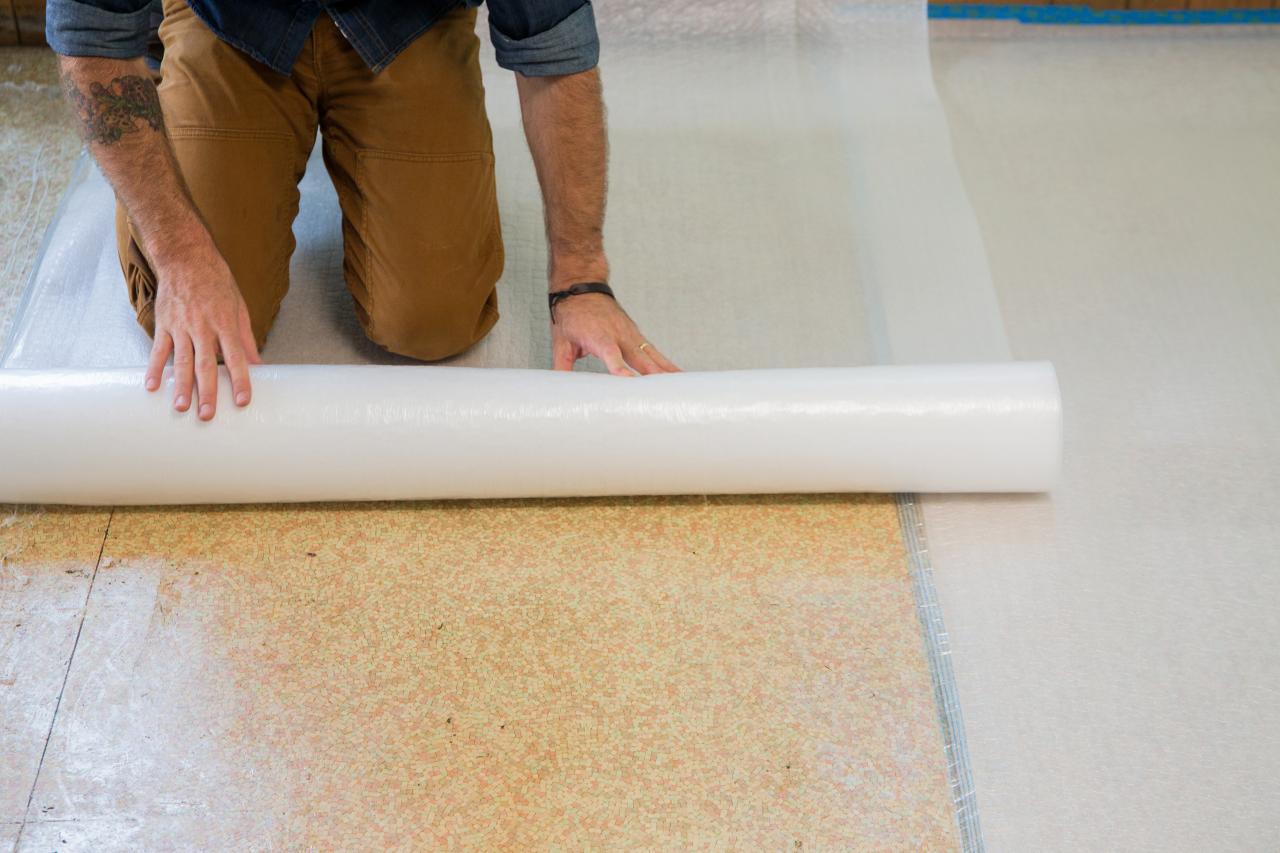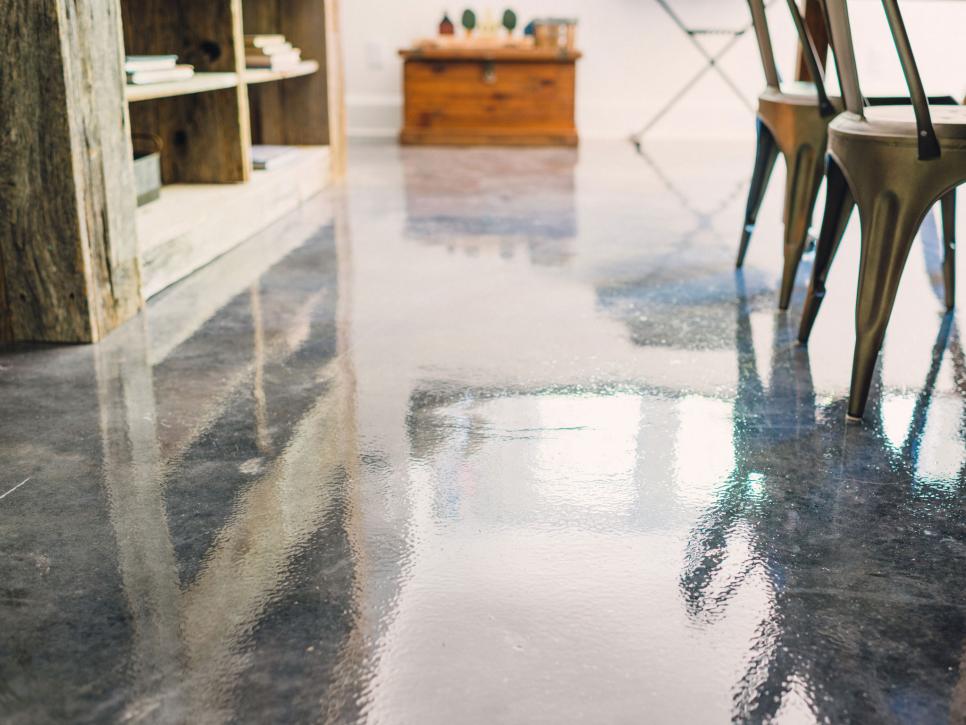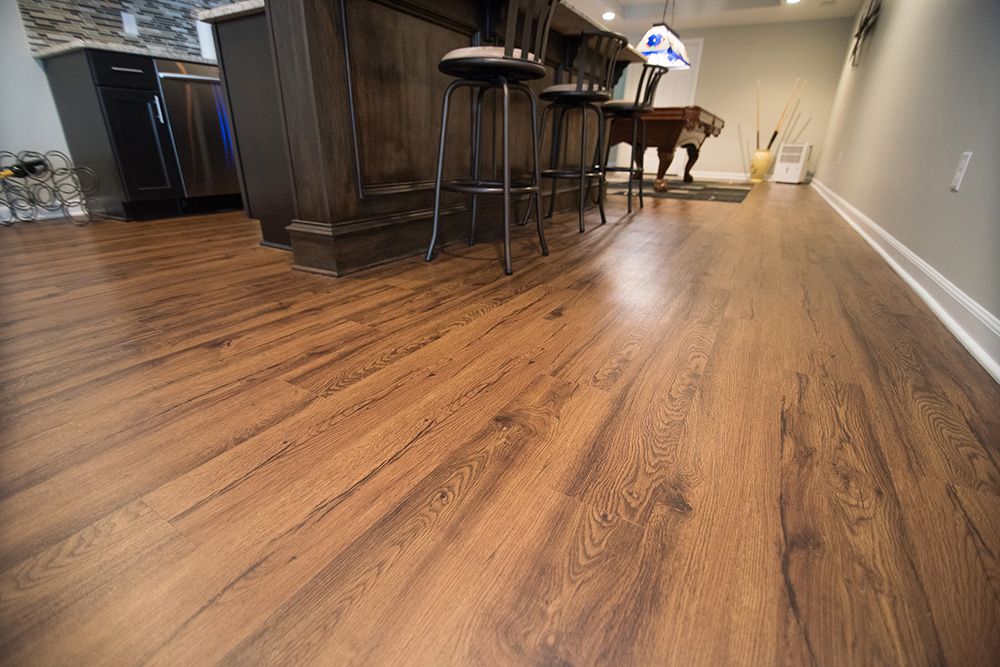Introduction to Affordable Basement Flooring Options
Finding the perfect flooring for your basement can seem like a challenge, especially when you’re trying to stick to a budget. Basements are unique spaces; they often deal with moisture, temperature changes, and sometimes limited natural light. Thankfully, many affordable basement flooring options can meet these needs while still looking great. Let’s explore some budget-friendly options and see which one might work best for your basement renovation.
- Vinyl Flooring Vinyl is one of the most popular affordable basement flooring options because of its water resistance and durability. It can mimic more expensive materials like hardwood and stone but at a fraction of the cost.
- Laminate Flooring Laminate is another great option that balances cost, aesthetics, and functionality. It’s easy to install and comes in a variety of styles, making it a top choice for DIYers.
- Carpet Tiles If you’re looking for warmth and comfort, carpet tiles are a great choice. They’re soft underfoot and easy to replace if one section gets damaged or stained.
- Concrete Stain or Paint A very low-cost solution is to work with what you have—your existing concrete floor. By applying stain or paint, you can create a durable, moisture-resistant surface that fits your style.
- Rubber Flooring Rubber flooring is affordable and ideal for basements that double as gyms or playrooms. It’s water-resistant, easy to install, and provides a cushioned surface for activities.
- Peel-and-Stick Tiles Peel-and-stick vinyl tiles are a super budget-friendly option that’s also DIY-friendly. They come in various designs, allowing you to create a custom look without the high price tag.

Pros and Cons of Using Budget-Friendly Materials
Choosing affordable flooring for your basement may seem like a no-brainer if you’re looking to save money. However, it’s essential to weigh the pros and cons of these materials before making a decision. While budget-friendly options can look great, they may not always have the longevity or high-end feel of pricier alternatives. Let’s dive into the advantages and disadvantages of going for cheaper basement flooring materials.
Pro: Cost-Effective The most obvious benefit of budget-friendly materials is their cost. Many affordable options, like vinyl and laminate, allow you to achieve a stylish look without a hefty price tag.
Con: Durability While some cheap materials hold up well over time, others may wear out faster than high-end options. For instance, low-quality laminate may scratch easily, and cheaper carpet tiles may flatten quickly.
Pro: DIY-Friendly Many affordable flooring options are designed for easy installation. Peel-and-stick tiles, for example, are incredibly simple to install without professional help, saving you even more money.
Con: Moisture Resistance Some budget-friendly materials may not handle moisture as well as pricier ones. For example, cheap laminate and carpet may suffer in a damp basement. It’s essential to pick materials suited for the environment.
Pro: Variety of Styles Even though the price is lower, many affordable materials come in a wide variety of styles and colors, making it easy to find a look that fits your vision.
Con: Limited Lifespan While affordable options can look great initially, their lifespan may not match up to more expensive materials. You might find yourself needing to replace budget-friendly floors sooner than you would with more durable, higher-end options.
Vinyl Flooring: A Popular and Affordable Choice
Vinyl flooring has surged in popularity as a go-to option for basement renovations. It’s easy on the wallet, water-resistant, and available in designs that can mimic wood, tile, and stone. Let’s break down why vinyl is such an excellent choice for basements on a budget.
Affordability Vinyl flooring is one of the most affordable materials on the market. It provides a high-end look without the high-end price, making it a favorite for homeowners looking to renovate their basements.
Water Resistance One of vinyl’s standout features is its water resistance. This makes it an ideal choice for basements, which are often prone to moisture issues. Luxury vinyl plank (LVP) and sheet vinyl are particularly well-suited for damp environments.
Durability Vinyl flooring is surprisingly durable, especially when it comes in thicker layers. It can handle heavy foot traffic, making it ideal for busy households or basements that double as entertainment spaces.
Variety of Styles You won’t have to sacrifice style when choosing vinyl. It comes in an impressive range of colors, textures, and designs. Whether you’re going for a rustic wood look or a sleek, modern finish, vinyl has something to offer.
Easy Installation Vinyl flooring is typically easy to install, especially peel-and-stick varieties or click-lock vinyl planks. This can save you on installation costs if you’re willing to take on a DIY project.
Low Maintenance Once installed, vinyl flooring requires very little maintenance. Regular sweeping and the occasional mop are all that’s needed to keep it looking new for years.
Laminate Flooring: Durable and Cost-Effective for Basements
Laminate flooring is another popular choice for those looking to upgrade their basement without overspending. Known for its durability and aesthetic appeal, laminate offers a high-end look at a fraction of the cost of materials like hardwood. Here’s why laminate is a fantastic option for basement spaces.
Affordable Alternative to Hardwood If you love the look of hardwood but can’t afford the real thing, laminate is a great substitute. It mimics the appearance of wood, giving your basement a sophisticated look without the premium price tag.
Durable and Scratch-Resistant Laminate is built to withstand wear and tear. It’s resistant to scratches and dents, making it an excellent choice for high-traffic areas or basements that see a lot of activity.
Moisture Resistance While not as moisture-resistant as vinyl, laminate can still perform well in basements when installed with a proper vapor barrier. Newer laminate designs are also more water-resistant than older models, making them better suited for damp spaces.
Easy to Install Many laminate floors use a click-lock installation system, which means you can install them without glue or nails. This feature makes laminate an ideal choice for DIYers looking to save on professional installation costs.
Variety of Styles Like vinyl, laminate flooring comes in a wide range of colors and textures. Whether you’re looking for a modern or traditional aesthetic, there’s a laminate option that will match your style.
Low Maintenance Laminate flooring is relatively easy to care for. Regular vacuuming or sweeping, along with an occasional mop, is all that’s required to keep it in good condition. Plus, its durable surface makes it resistant to stains and spills.
Carpet Tiles: Soft, Inexpensive, and Easy to Install
If you want to add warmth and comfort to your basement, carpet tiles might be the way to go. Unlike traditional wall-to-wall carpet, carpet tiles are easy to install and replace, making them a budget-friendly option for basement flooring. Here’s why carpet tiles could be the perfect choice for your space.
Budget-Friendly Carpet tiles are often cheaper than traditional carpeting and can be purchased in bulk, which helps keep costs down. They’re an excellent choice for homeowners looking to add softness to their basements without overspending.
Comfort Underfoot Basements can feel cold and hard, especially if they’re used as living or play spaces. Carpet tiles offer a cushioned surface that makes the basement feel more inviting and comfortable underfoot.
Easy Installation One of the major benefits of carpet tiles is their easy installation. They typically come with adhesive backing, so all you have to do is peel and stick them onto the floor. This makes them a great option for DIYers.
Moisture Resistance While carpet tiles may not be the first choice for wet basements, many are made from materials that resist moisture. Some tiles are even designed for basements with minor moisture issues, offering a more practical alternative to traditional carpeting.
Design Flexibility Carpet tiles come in a wide variety of colors, patterns, and textures. You can even mix and match different designs to create a custom look that’s unique to your basement.
Easy to Replace If a section of your carpet gets stained or damaged, you don’t have to replace the entire floor. Simply lift the damaged tile and replace it with a new one, making maintenance both easy and affordable.
Concrete Stain and Paint: A Low-Cost DIY Approach
For the ultimate budget-friendly basement flooring option, consider working with your existing concrete floors. By staining or painting the concrete, you can create a polished and durable surface that’s both stylish and easy on the wallet. Here’s why concrete stain and paint might be the best choice for your basement.
Super Affordable Using stain or paint on your existing concrete floor is about as budget-friendly as you can get. All you need is the stain or paint, some tools, and a weekend to transform your basement floor into something beautiful.
Durability Concrete floors are incredibly durable, and staining or painting them only enhances their strength. A stained or painted concrete floor can withstand heavy foot traffic, furniture, and even moisture without showing signs of wear.
Moisture Resistance One of the best features of concrete flooring is its natural moisture resistance. By adding a layer of stain or paint, you create a barrier that helps protect the floor from water damage—perfect for a basement environment.
Low Maintenance Once the concrete floor is stained or painted, it requires very little maintenance. Regular sweeping and an occasional mop are all that’s needed to keep it looking clean and fresh.
Customizable Look Staining and painting allow for a high level of customization. You can choose from a wide range of colors, finishes, and patterns to create a one-of-a-kind look that reflects your style.
Easy DIY Project If you’re looking to save even more money, staining or painting your concrete floor is a simple DIY project. With the right tools and a bit of patience, you can have a professional-looking floor without paying for professional installation.
How to Choose the Best Cheap Flooring for Your Basement
With so many affordable basement flooring options available, choosing the right one can feel overwhelming. Each material has its benefits and challenges, and the right choice will depend on your basement’s unique conditions and your personal preferences. Here are some tips to help you pick the best flooring for your budget and basement.
Consider Moisture Levels Basements are often damp, so moisture resistance is a key factor when choosing flooring. Vinyl, rubber, and concrete stain or paint are great options for moisture-prone spaces. Avoid materials like traditional carpets, which can trap moisture and lead to mold growth.
Think About Durability If your basement is a high-traffic area or used for activities like working out or entertaining, durability is essential. Materials like vinyl, laminate, and rubber flooring are tough enough to handle wear and tear.
Factor in Installation Costs While DIY-friendly materials like vinyl tiles, laminate, and carpet tiles can save you on installation costs, others may require professional help. Consider whether you’re willing to take on a DIY project or if you’ll need to budget for installation fees.
Decide on Comfort If your basement is used as a living or play space, comfort may be a priority. Carpet tiles or rubber flooring offer a soft surface underfoot, making them ideal for cozying up a space that may otherwise feel cold and hard.
Look at Style Options Budget-friendly flooring doesn’t have to mean boring. Many materials come in a variety of colors, patterns, and finishes that can mimic high-end styles. Take your time to explore different options and find a design that fits your vision.
Set a Realistic Budget Before you start shopping, set a realistic budget for your basement flooring. Keep in mind that while cheaper materials may save you money upfront, they might require more maintenance or need to be replaced sooner than higher-end options.
Most Durable Basement Flooring Options
Explore Basement Flooring Options, Costs and Ideas
Basement Flooring Ideas – Basement Flooring
What is the Best Flooring for Basements?
Related Posts:
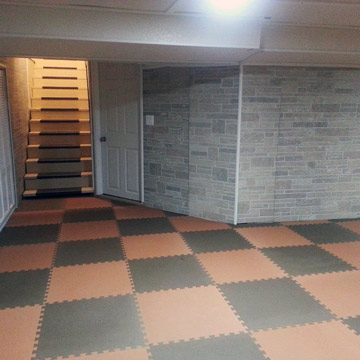
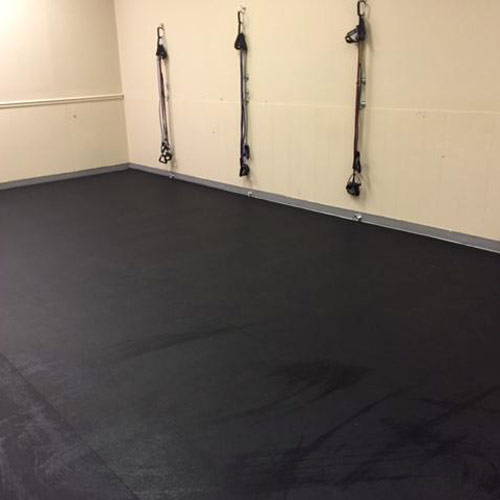
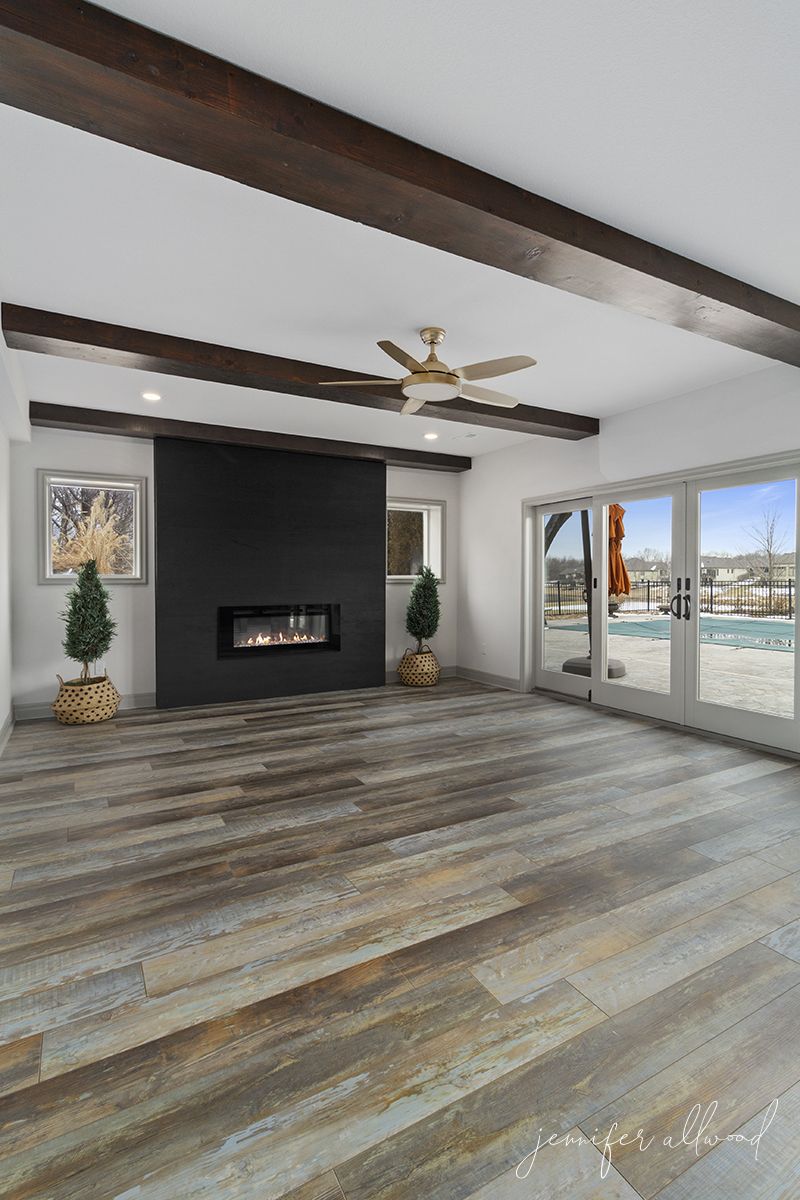
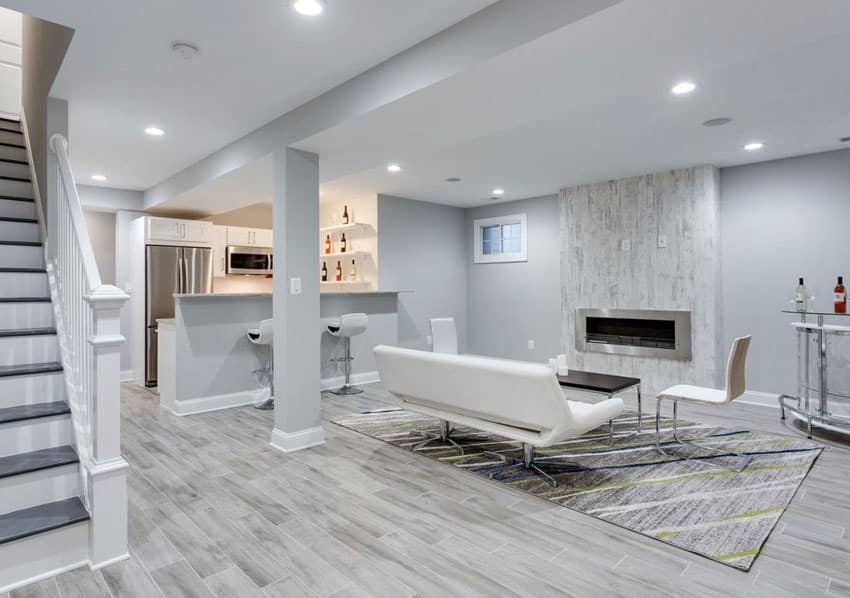

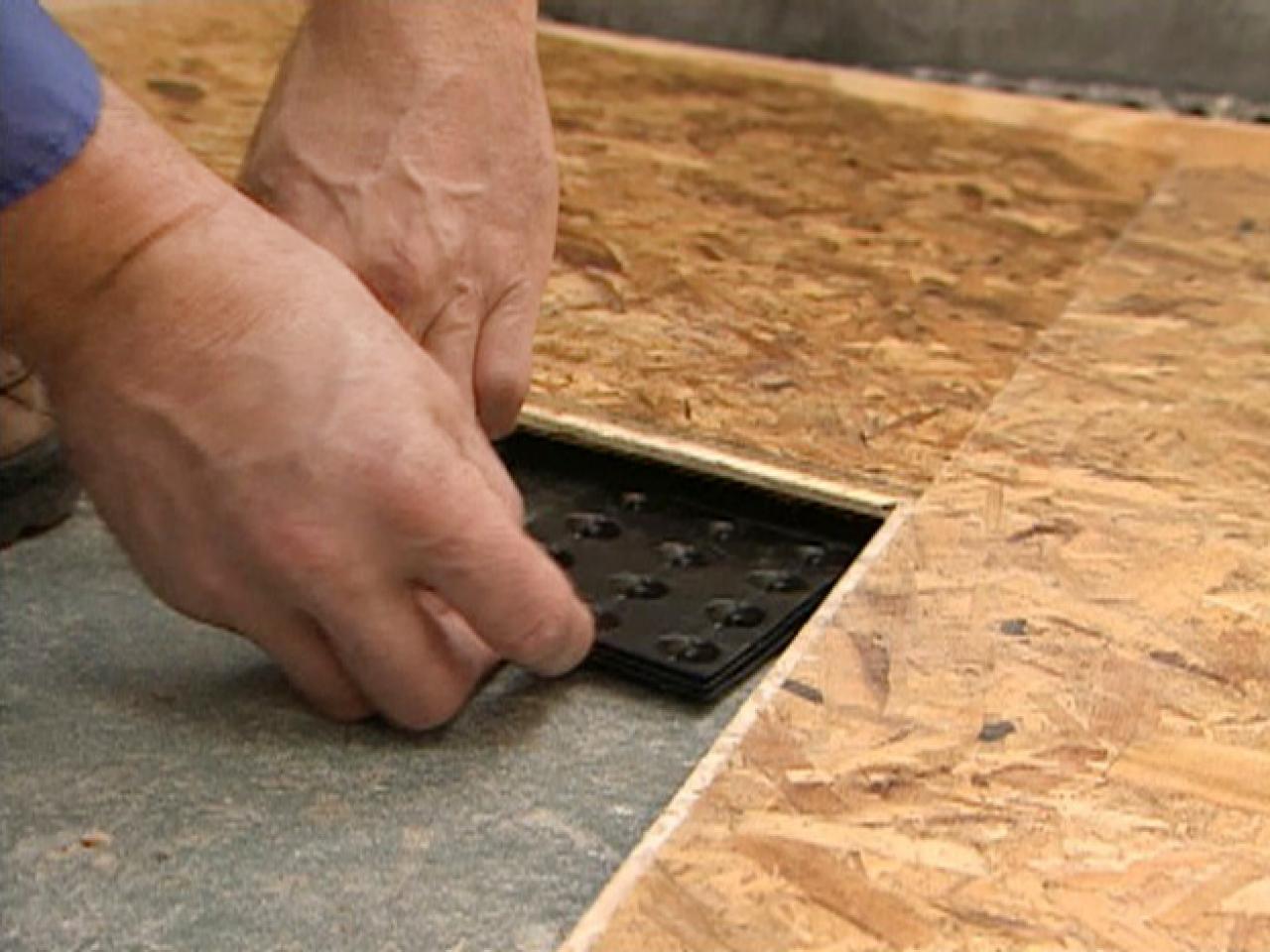
.jpg?widthu003d800u0026nameu003d11513489635_f12521f2a2_k%20(1).jpg)
